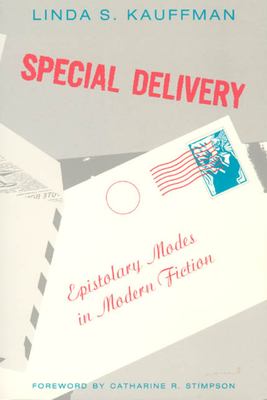By Linda S. Kauffman (NHC Fellow, 1983–84)

Chicago: The University of Chicago Press, 1992
From the publisher’s description:
Though letter writing is almost a lost art, twentieth-century writers have mimed the epistolary mode as a means of reevaluating the theme of love. In Special Delivery, Linda S. Kauffman places the narrative treatment of love in historical context, showing how politics, economics, and commodity culture have shaped the meaning of desire.
Kauffman first considers male writers whose works, testing the boundaries of genre and gender, imitate love letters: Viktor Shklovsky’s Zoo, Vladimir Nabokov’s Lolita, Roland Barthes’s A Lover’s Discourse, and Jacques Derrida’s The Post Card. She then turns to three novels by women who are more preoccupied with politics than passion: Doris Lessing’s The Golden Notebook, Alice Walker’s The Color Purple, and Margaret Atwood’s The Handmaid’s Tale. By juxtaposing these "women’s productions" with the men’s "production of Woman," Special Delivery dismantles the polarities between male and female, theory and fiction, high and low culture, male critical theory, and feminist literary criticism. Kauffman demonstrates how all seven texts mercilessly expose the ideology of individualism and romantic love; each presents alternate paradigms of desire, wrested from Oedipus, grounded in history and politics, giving epistolarity a distinctively postmodern stamp.
Subjects
Literature / Literary Theory / Gender and Sexuality / Gender Studies / Women / Feminist Criticism / Correspondence / Epistolary Fiction / Modernism /Kauffman, Linda S. (NHC Fellow, 1983–84). Special Delivery: Epistolary Modes in Modern Fiction. Women in Culture and Society. Chicago: The University of Chicago Press, 1992.